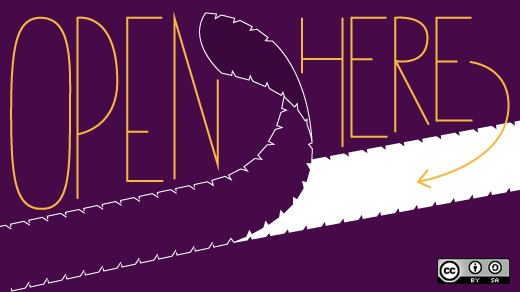[[{"fid":"288896","view_mode":"default","fields":{"format":"default","field_file_image_alt_text[und][0][value]":"Michelle Brush on Twitter","field_file_image_title_text[und][0][value]":"Michelle Brush on Twitter","field_file_image_caption[und][0][value]":"
Michelle Brush on Twitter
","field_file_image_caption[und][0][format]":"panopoly_wysiwyg_text","field_folder[und]":"9402"},"type":"media","attributes":{"alt":"Michelle Brush on Twitter","title":"Michelle Brush on Twitter","height":"179","width":"150","style":"float: right; margin: 8px;","class":"media-element file-default"}}]]
Michelle Brush will talk at OSCON this year about how engineers and architects in tech can make better decisions by understanding their environment. How? Through behavioral economics, a discipline that, in her words, straddles psychology and economics.
Hear insights that can be applied to any position in tech. Plus, have you heard of Midwest.io? Get all the details in this interview.

opensource.com
What are your daily responsibilities as a senior software architect for Cerner Corporation?
My role is a technical leadership position, so I help define system expectations, steer our technology decisions, and analyze/model our data.
My engineers and I work on software that ingests, standardizes, and transforms healthcare data from a variety of sources into a structured, normalized data model using Hadoop, HBase, Crunch, Kafka, and other open source technologies.
This year at OSCON you'll talk about architectural decisions in the context of behavioral economics. What is behavioral economics?
Classical economics assumes informed and rational actors in the system. Humans are often emotional, biased, and uninformed. Behavioral economics is the study of how real people behave in systems given all of their biases and imperfections. In this way it straddles psychology and economics.
What are some main ideas you'll focus on to steer software engineers and architects into making the right architectural decisions?
As engineers and architects, we need to be aware of our biases and how we are influenced by the environment in which we are making decisions. We are heavily influenced by how choices are presented to us, by what our peers think, by what incentive systems are in place, and by our own desire to work on interesting things. We also tend to make decisions on data that is easy to gather, but the easily obtained data doesn't necessarily tell us what we need to know in order to make a good decision.
What initiatives are you working on as chapter leader of the Girl Develop It in Kansas City?
With Girl Develop It, we're focusing on exposing experienced women to the idea of programming as a career option. We offer regular classes on web development, HTML and CSS, GitHub, and JavaScript so that women can have a graceful introduction to the field. We just wrapped up our second class on web concepts where we had women that are currently working in human resources, corporate education, graphic design, and even law learn more about how the Internet works.
Next up, we'll be teaching them how to build basic webpages in HTML and CSS.
What patterns do you notice in girls and women learning to code?
A lot of the girls and women we’ve worked with are inspired by the problems they want to solve more than by the technology they will use. They want to take on challenges. They want to have impact. Writing code is just a means to that end. I've learned to tailor my teaching style so that I'm presenting topics like object-oriented design, functions, or even basic control structures in the context of how it can be used to approach a problem. I don't think this is unique to women, just more pronounced.
As a conference organizer for Midwest.io, can you tell us what sets this conference apart for developers?
The explosion of open source technology options has made the job of a software architect less about asking, "How should we build it?" and more about "What should we use to build it?" Having a good mental model and system around how we make technology choices is essential in this environment.
Anything else you'd like to share?
Midwest.io is a small, eclectic conference covering a wide range of computing concepts. It doesn't focus on any one discipline. Last year we had people from all over the country speaking on mobile ad hoc networks, rules engines, compression, data science, and property-based testing. For me, the greatest appeal of the conference is that it doesn't focus on a single technology, but rather gives me insight by cross-pollinating ideas from different areas.
Speaker Interview
This article is part of the Speaker Interview Series for OSCON 2015. OSCON is everything open source—the full stack, with all of the languages, tools, frameworks, and best practices that you use in your work every day. OSCON 2015 will be held July 20-24 in Portland, Oregon..






1 Comment